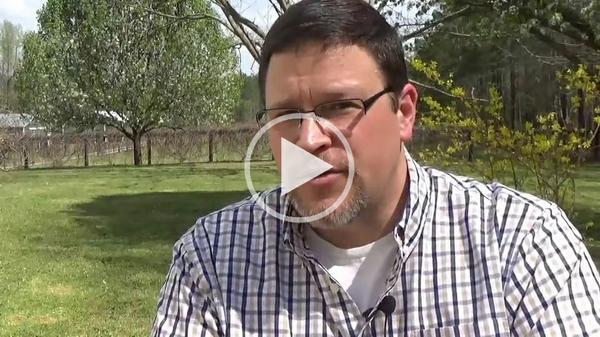Hi all,
They told me the preparation for a colonoscopy was the worst part of it. They lied.
It was scheduled a few Friday's ago, and the last solid food was that Wednesday. At 2pmWednesday I pulled a box of Macaroni and Cheese out of the pantry that we keep for Chris, who loves the stuff, and downed my last meal. That night I took an innocent little orange pill prescribed as part of the preparation - it was an overnight laxative. So harmless looking I thought. Gentle they said. No problem they said.
That night my stomach and intestines felt like a Nazi Panzer division was approaching from one side, and whatever food I had in my system was fighting hand to hand combat in resistance. Whatever the battle going on inside me, it was so loud I was concerned of waking Barb if I went to bed. It was about 2:45am before things quieted down enough I wouldn't awaken her with battle noises.
By Thursday noon, the Panzer division had won and there was nothing left in my system, but still at 4pm I had to pour a bottle of some liquid into a large cup, mix with water, and drink it and 2 more equally large size helpings of water. 48 ounces (1.4 liters) in total. All at once.
Then I had to repeat that 4 hours later. That wasn't a fight with a Panzer division - there was no more fight in me, no troops to resist that liquid, which was a medical drain cleaner essentially. I slept on the sofa as I was up and down visiting the bathroom so much that I thought about writing limericks on the walls. Funny what you think of in the middle of the night.
That wasn't bad at all compared to going to the hospital. I knew it was real rather than a bad dream when the nurse told me as she closed the curtain around the bed in pre-op, "Take off all your clothes and jewelry and put on the gown with the flap open in back. It's best if you sit your bare fanny on the bed."
I remember thinking, "Women go through this sort of thing all the time, right?", and right on cue Barb came through the pre-op door and immediately laughed at my new attire, as she said ever so kindly, "Remember, you didn't have to do this, you're doing it to yourself." I appreciated her sense of humor if not her sarcasm.
The warm blankets they placed over me as they put an IV in the top of my right hand and a blood pressure cuff on my left arm helped me feel more comfortable, but I think it was actually a relaxing drug in the IV that caused me to relax. Then all the nurses started talking about where they were going to have lunch. I had last eaten 48 hours earlier. I laid there listening as they went into lavish detail about this restaurant's dishes and that new place someone tried out and said was amazing...my nurse even acknowledged their conversation and apologized, but went right back to join them - torturers dressed up as nurses.
When they wheeled me into the examination room they introduced me to the doctor, whom I'd met a couple weeks ago in an earlier briefing about the procedure, followed by 2 male nurses, then 2 female nurses. I knew time was close when they told me to turn onto my left side, exposing my back side to these complete strangers. I was somewhat comforted in the knowledge I was the last one of the morning and they all wanted to get to lunch, so we were agreed we all just wanted to get out of there as quickly as possible.
I remember saying, "Ladies and gentlemen, you're about to boldly put a camera where no camera has gone before", and they all laughed and continued laughing as the male nurse at my side injected something into the IV in my hand...the next thing I knew I was awake and dry heaving with nothing to vomit, in post-op, with the nurses saying something like, "C'mon Mr. Fenn, wake up, we're hungry and want to get to lunch." - maybe they didn't actually say that - But I knew what they were thinking it.
In the mean time the doctor visited Barb in the waiting room, presenting her with 4 full color snapshots of the inside of my colon, telling her essentially I was as clean as a whistle and he will see me in 5 years. That detail was mostly lost on Barb, who didn't even want to touch a photo of her husband's colon without a gloved hand. Well, as I said, clean as a whistle at both ends, having lost 20 pounds (9k) but needing to lose 20 more pounds, and will talk of a heart reset in 6 months - that's where I stand.
I go back to the verse Lou sent me from Daniel 12:13, on November 22, "And you? Go about your business without fretting or worrying. Relax. When it’s all over, you will be on your feet to receive your reward.”
The process may help someone
After the Father told me not to schedule any trips the first 3 months of the year, I wondered why He didn't just heal rather than inform me, but then knowing His ways, I understood it could be healed by doing something within my area of responsibility, or was curable medically, or I'd just live with it.
I had shared last week after my January diagnosis of AFib and high blood pressure I went home, laid my right hand over my heart, and said words to the effect; "Heart and electrical system, I command you to be healed in the name of Jesus. I command my body to obey the Word and me and be healed, reset, or systems do whatever is required for the AFib to be gone, and blood pressure return to normal levels, in Jesus' name." The next week at the doctor's appointment he listened to my heart, and the AFib was still there, along with high blood pressure.
When I speak the name of Jesus yet the Holy Spirit has not been sent by the Father to do the work that I am commanding in Jesus' name so there is no change, I have found it means I have to deal with the issue in the natural - you'll remember I shared about the basal cell carcinoma of 2007 that way.
I don't want to do the electrical 'reset' procedure on my heart unless it is the Father's process and means by which the AFib will be cured. Having done what I know to do in the Spirit and nothing happening, and seeing results with my blood pressure going down as I have lost weight, I can only conclude I have to deal with the AFib to the extent I wish to, in the natural.
The process continued - February's visitation
The curious thing is, the Lord visited me after my initial diagnosis but before my heart echo and colonoscopy, and I shared part of that visitation and accompanying vision in this space in February. In the visitation the most He said about my health was, "I'm pleased you are taking this seriously and disciplining yourself (eating/weight). Relatively few do in situations like this, in matters of the body. I'm very pleased. Continue with what you are doing." In other words, you've lost 20 pounds, you're on the right track, continue.
And then He proceeded to talk of what will happen in the US through next year, some things the EU will go through (I'll share at the Dutch conference), and things about the body of Christ. That was it - no laying hands on me to heal me - just a mention of my health and then right into why He was visiting me.
When you are in the Spirit the seemingly important questions you have while in the flesh don't come to mind. It is so natural, being in the Spirit, so normal, you almost don't realize it (remember Peter who wanted to make tents on the Mount of Transfiguration)...so it wasn't even a disappointment He didn't lay hands on me, the questions came after He left and I wondered to myself, 'Why didn't you ask Him to lay hands on you?"
That only re-affirms the conclusions above.
Final thought
I continue to worship and give thanks for the Father's grace, and I feel like I have clarity by His choice not to heal me directly, rather to let me go through medical processes. I am taking responsibility for that which is in my control, for by allowing my weight and blood pressure to rise to the point of obesity coupled with a genetic predisposition towards AFib, I caused it though I was partly in ignorance.
I did it to myself by eating too much, so the only way out is to eat less to drop the weight. As of this writing I've lost 20 pounds on my way to another 15-20, and my blood pressure is lower, but not quite at 120/80.
That doesn't help those who become ill through no known fault of their own, but if He showed me this grace for something I did at least in part to myself, I believe there is that same grace for those who in innocence become ill with a condition or disease. Seek Him first, not a cure, for the cure is in Him. Though we all have questions, part of faith is trust, and must be as Paul stated in II Timothy 1:12, "For I know in whom I have believed, and believe He is able to keep that which I have entrusted to Him until that day."
New subject next week, until then, blessings!
John Fenn


